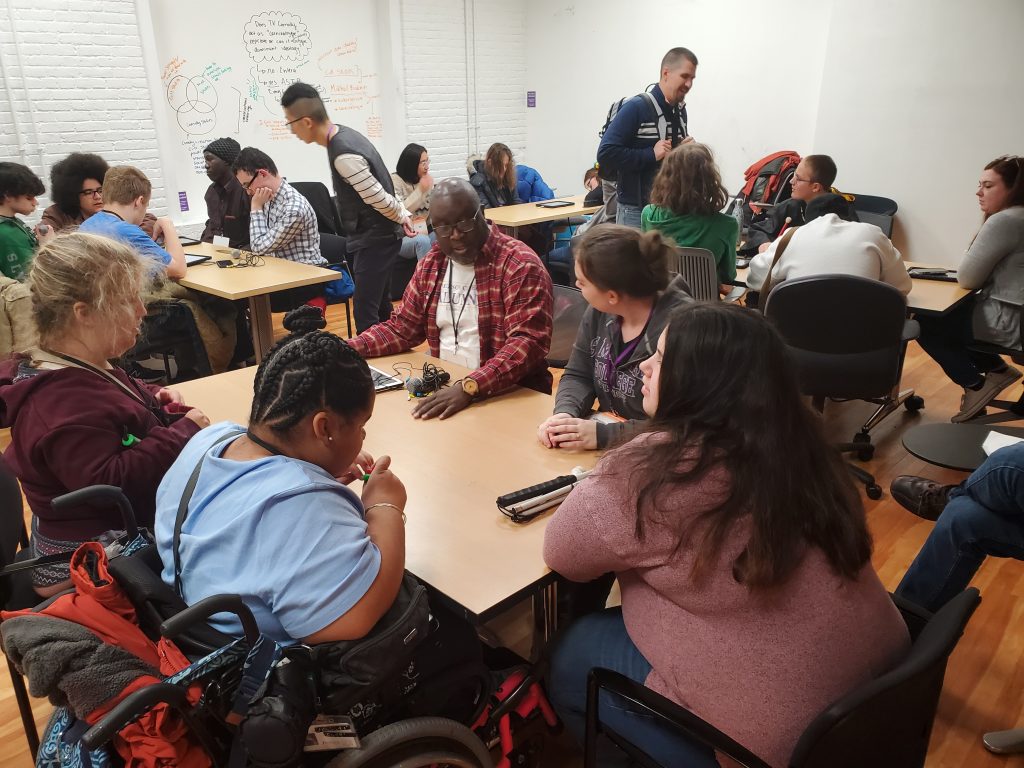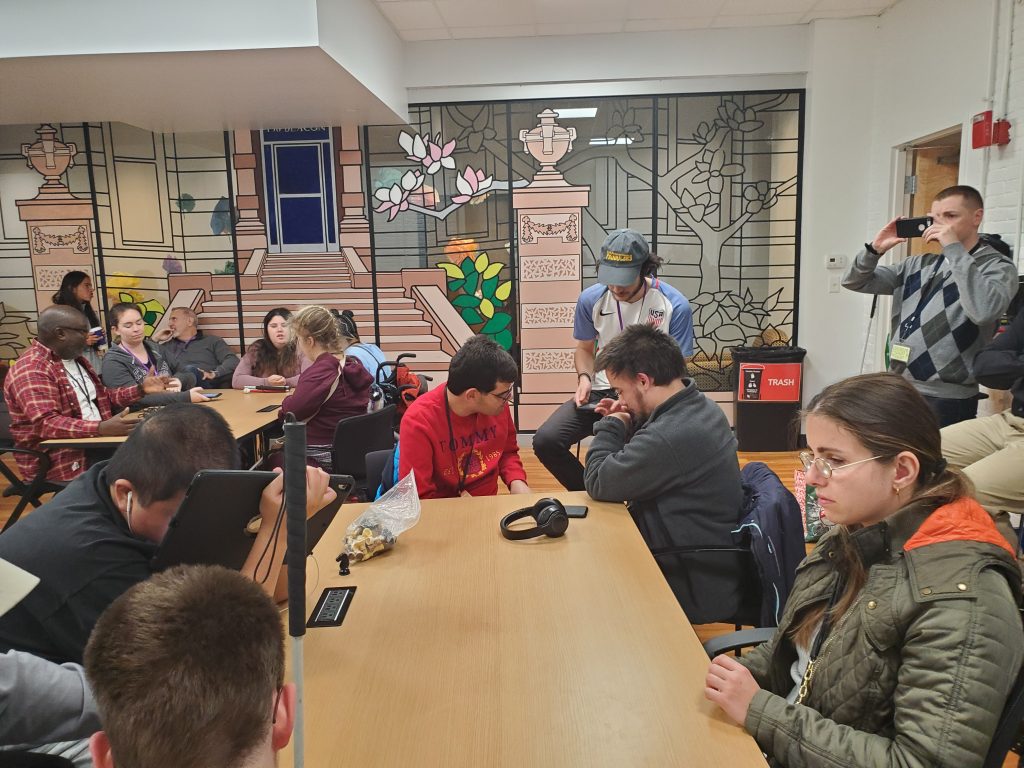Communication Students Take Inclusion to a New Horizon for the Blind

By Molly Loughman
Podcasting demands rich storytelling without visual aid — an alluring activity for people who are blind.
Recently, Emerson Communication Studies students helped 16 public high school students with visual impairment learn the fundamentals of podcasting during a day-long pilot workshop with the Perkins School for the Blind.
In addition to learning about the history of radio and audio storytelling, the high school students brainstormed podcast ideas before writing and recording their own episode. The workshop, hosted at Emerson’s Boston campus, used only microphones and iPads to encourage students to continue experimenting with podcasts at home.

“They were excited and wanted to create something,” said Mohammad Khalil, the Communication Studies professor who helped spearhead the workshop. “Podcasting is a growing industry and the blind population is exploring that because they don’t have access to all this published material and their access to mainstream media is very limited as well.
“But podcasting is something people can do on their phones, in their rooms, and with some skills to develop the theme, develop the story, talk about it, and maybe invite people to participate in it. Add a little bit of production and editing — and that’s what helped students when they were here.”
THE IDEA BEHIND THE WORKSHOP, which was a part of Perkins’ Short Courses (monthly activities intended to complement students’ academic courses), was conceived by Khalil’s son, Ibrahim Khalil ’18, a graduate of both Perkins and Emerson’s Communication Studies program. For the last few years, Ibrahim has run an Internet radio show at Perkins School’s technology center, which features recording facilities.
“So Ibrahim worked on the Perkins side and I worked here on the Emerson side,” recalled Khalil. Together, the father and son brought their plans for the podcasting workshop to life, with support from the School of Communication and the Office of Internationalization and Globalization.
“So the technology is there. The environment is there. Our Emerson leadership and students are excited. And the high students are excited about the engagement and inclusion,” said Khalil. “My hope is that we have enough support to make the program sustainable a couple times a year and where the branding of disability inclusion becomes apart of the Emerson persona.”
Categories